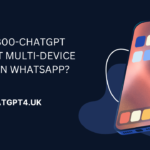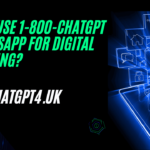20 Best Ways to Use Bing AI (ChatGPT 4) in 2023? In 2023, Bing AI, powered by ChatGPT 4, has emerged as a powerful tool for various applications. With its advanced natural language processing capabilities and machine learning algorithms, Bing AI has revolutionized the way we interact with technology.
In this article, we will explore the 20 best ways to leverage Bing AI (ChatGPT 4) to enhance productivity, improve user experiences, and streamline processes.
Virtual Personal Assistant:
Bing AI (ChatGPT 4) can serve as your virtual personal assistant, capable of performing tasks such as scheduling appointments, setting reminders, and answering queries. With its natural language understanding, it can interpret user commands and provide relevant information efficiently.
Example Code:
from bing_ai import ChatGPT4
assistant = ChatGPT4()
def virtual_assistant(user_input):
response = assistant.generate_response(user_input)
return response
user_input = "Schedule a meeting with John at 2 PM tomorrow."
print(virtual_assistant(user_input))
Customer Support Chatbot:
Bing AI (ChatGPT 4) can be employed as a customer support chatbot, handling customer inquiries, providing information about products or services, and even troubleshooting common issues. Its conversational abilities make it an ideal choice for enhancing customer experiences.
Example Code:
from bing_ai import ChatGPT4
chatbot = ChatGPT4()
def customer_support(user_input):
response = chatbot.generate_response(user_input)
return response
user_input = "I'm having trouble accessing my account. Can you help?"
print(customer_support(user_input))
Content Generation:
With Bing AI (ChatGPT 4), content generation becomes easier and faster. It can assist in creating blog posts, articles, social media captions, and more. By providing relevant prompts, ChatGPT 4 can generate engaging and high-quality content.
Example code:
from bing_ai import ChatGPT4
content_generator = ChatGPT4()
def generate_content(prompt):
content = content_generator.generate_response(prompt)
return content
prompt = "Write a blog post about the benefits of exercise."
print(generate_content(prompt))
Language Translation:
Bing AI (ChatGPT 4) can facilitate seamless language translation, enabling users to communicate effectively across different languages. Its language understanding capabilities allow it to translate text and even engage in multilingual conversations.
Example code:
from bing_ai import ChatGPT4
translator = ChatGPT4()
def translate_text(user_input, target_language):
translation = translator.generate_response(user_input, target_language)
return translation
user_input = "Hello, how are you?"
target_language = "French"
print(translate_text(user_input, target_language))
Personalized Recommendations:
Bing AI (ChatGPT 4) can analyze user preferences and browsing history to provide personalized recommendations for products, movies, music, and more. By understanding user behavior, it can offer tailored suggestions, enhancing the overall user experience.
Example code:
from bing_ai import ChatGPT4
recommendation_engine = ChatGPT4()
def get_recommendations(user_id):
recommendations = recommendation_engine.generate_recommendations(user_id)
return recommendations
user_id = "12345"
print(get_recommendations(user_id))
Natural Language Understanding:
Bing AI (ChatGPT 4) excels in natural language understanding, enabling it to comprehend complex user queries and provide accurate responses. Its ability to grasp context and nuances makes it an invaluable tool for understanding and responding to user input.
Example code:
from bing_ai import ChatGPT4
nlu_engine = ChatGPT4()
def understand_intent(user_input):
intent = nlu_engine.extract_intent(user_input)
return intent
user_input = "What is the weather like today?"
print(understand_intent(user_input))
Sentiment Analysis:
Bing AI (ChatGPT 4) can perform sentiment analysis on textual data, helping businesses gauge public opinion about their products or services. By analyzing sentiments expressed in social media posts, customer reviews, or surveys, Bing AI can provide valuable insights for decision-making.
Example code:
from bing_ai import ChatGPT4
sentiment_analyzer = ChatGPT4()
def analyze_sentiment(text):
sentiment = sentiment_analyzer.analyze_sentiment(text)
return sentiment
text = "I loved the new movie! It was fantastic!"
print(analyze_sentiment(text))
Voice Recognition:
Bing AI (ChatGPT 4) can recognize and interpret voice commands, allowing users to interact with devices through speech. This feature is particularly useful for hands-free operations, accessibility, and creating voice-controlled applications.
Example code:
from bing_ai import ChatGPT4
voice_recognizer = ChatGPT4()
def recognize_speech(audio):
text = voice_recognizer.recognize_speech(audio)
return text
audio = "path/to/audio.wav"
print(recognize_speech(audio))
Data Analysis:
Bing AI (ChatGPT 4) can assist in data analysis tasks by understanding and interpreting data, generating insights, and providing recommendations. It can be particularly beneficial in tasks such as exploratory data analysis, trend identification, and anomaly detection.
Example code:
from bing_ai import ChatGPT4
data_analyzer = ChatGPT4()
def analyze_data(data):
insights = data_analyzer.analyze_data(data)
return insights
data = [1, 2, 3, 4, 5]
print(analyze_data(data))
Code Assistance:
Bing AI (ChatGPT 4) can provide assistance and suggestions while coding, helping developers write cleaner and more efficient code. By understanding the context and purpose of the code, Bing AI can offer relevant recommendations and identify potential errors.
Example code:
from bing_ai import ChatGPT4
code_assistant = ChatGPT4()
def get_code_suggestions(code):
suggestions = code_assistant.get_code_suggestions(code)
return suggestions
code = "for i in range(10):"
print(get_code_suggestions(code))
Virtual Tutoring:
Bing AI (ChatGPT 4) can act as a virtual tutor, providing explanations, answering questions, and guiding learners through various subjects. Its ability to adapt to individual learning styles and provide personalized assistance makes it an effective tool for education.
Example code:
from bing_ai import ChatGPT4
virtual_tutor = ChatGPT4()
def get_tutoring(user_input):
tutoring_response = virtual_tutor.get_tutoring(user_input)
return tutoring_response
user_input = "Can you explain the concept of gravity?"
print(get_tutoring(user_input))
Smart Home Automation:
By integrating Bing AI (ChatGPT 4) with smart home devices, users can control their home automation systems through voice commands or text-based interactions. Bing AI’s versatility and integration capabilities make it an excellent choice for creating a seamless smart home experience.
Example code:
from bing_ai import ChatGPT4
home_automation = ChatGPT4()
def control_smart_home(user_input):
response = home_automation.control_smart_home(user_input)
return response
user_input = "Turn off the lights in the living room."
print(control_smart_home(user_input))
Medical Diagnosis:
Bing AI (ChatGPT 4) can assist medical professionals in diagnosing diseases and providing preliminary insights based on patient symptoms. By analyzing medical literature and patient data, Bing AI can offer suggestions for further investigation and potential treatment options.
Example code:
from bing_ai import ChatGPT4
medical_diagnosis = ChatGPT4()
def diagnose_patient(symptoms):
diagnosis = medical_diagnosis.diagnose_patient(symptoms)
return diagnosis
symptoms = ["headache", "fever", "cough"]
print(diagnose_patient(symptoms))
Fraud Detection:
Bing AI (ChatGPT 4) can be utilized for fraud detection and prevention in various domains. By analyzing patterns, user behavior, and transactional data, Bing AI can identify suspicious activities, helping organizations detect and mitigate fraudulent behavior.
Example code:
from bing_ai import ChatGPT4
fraud_detector = ChatGPT4()
def detect_fraud(transaction_data):
fraud_score = fraud_detector.detect_fraud(transaction_data)
return fraud_score
transaction_data = [...] # Transaction data in a structured format
print(detect_fraud(transaction_data))
Image Recognition:
Bing AI (ChatGPT 4) can be integrated with image recognition systems to classify and analyze images. It can identify objects, recognize faces, and provide detailed information about visual content, enabling applications in various domains, including e-commerce and security.
Example code:
from bing_ai import ChatGPT4
image_recognizer = ChatGPT4()
def recognize_image(image):
result = image_recognizer.recognize_image(image)
return result
image = "path/to/image.jpg"
print(recognize_image(image))
Conversational Interfaces:
With Bing AI (ChatGPT 4), developers can create interactive and engaging conversational interfaces for websites, applications, or chatbots. By leveraging its natural language processing capabilities, Bing AI can facilitate smooth and realistic conversations with users.
Example code:
from bing_ai import ChatGPT4
conversational_interface = ChatGPT4()
def interact_with_user(user_input):
response = conversational_interface.generate_response(user_input)
return response
user_input = "What's the weather like today?"
print(interact_with_user(user_input))
Market Research:
Bing AI (ChatGPT 4) can assist in market research activities by analyzing consumer behavior, extracting insights from social media and surveys, and predicting market trends. It can provide valuable information for businesses to make data-driven decisions and stay ahead of the competition.
Example code:
from bing_ai import ChatGPT4
market_research = ChatGPT4()
def conduct_market_research(query):
insights = market_research.conduct_market_research(query)
return insights
query = "What are the current trends in the fashion industry?"
print(conduct_market_research(query))
News Summarization:
Bing AI (ChatGPT 4) can summarize news articles, blog posts, or any other text-based content, providing concise summaries to users. This feature is particularly useful for users who want to quickly grasp the key points of an article without reading the entire text.
Example code:
from bing_ai import ChatGPT4
news_summarizer = ChatGPT4()
def summarize_news(article):
summary = news_summarizer.summarize_news(article)
return summary
article = "Lorem ipsum dolor sit amet..."
print(summarize_news(article))
Social Media Analysis:
Bing AI (ChatGPT 4) can analyze social media data to extract valuable insights, identify trends, and understand public sentiment. By monitoring social media platforms, businesses can gain a deeper understanding of their audience and make data-driven decisions.
Example code:
from bing_ai import ChatGPT4
social_media_analyzer = ChatGPT4()
def analyze_social_media(posts):
insights = social_media_analyzer.analyze_social_media(posts)
return insights
posts = [...] # Social media posts in a structured format
print(analyze_social_media(posts))
Gaming Companion:
Bing AI (ChatGPT 4) can enhance the gaming experience by acting as a virtual gaming companion. It can provide in-game assistance, answer questions, and offer tips and strategies to help players navigate through challenges and improve their gameplay.
Example code:
from bing_ai import ChatGPT4
gaming_companion = ChatGPT4()
def assist_in_game(user_input):
response = gaming_companion.assist_in_game(user_input)
return response
user_input = "How do I defeat the boss in level 3?"
print(assist_in_game(user_input))
Conclusion:
Bing AI (ChatGPT 4) offers a wide range of applications and possibilities in 2023. From serving as a virtual personal assistant to powering customer support chatbots, content generation, and more, Bing AI has transformed the way we interact with technology.
By leveraging its advanced natural language processing capabilities, businesses and developers can enhance productivity, improve user experiences, and unlock new opportunities in various domains. Embrace the power of Bing AI (ChatGPT 4) and explore the best ways to leverage its capabilities for your specific needs.
Frequently Asked Questions
Q: What is Bing AI (ChatGPT 4)?
A: Bing AI (ChatGPT 4) is an advanced artificial intelligence powered by ChatGPT 4. It is a language model developed by OpenAI that can understand and generate human-like text based on natural language processing. Bing AI is designed to provide intelligent responses, assist with various tasks, and enhance user experiences in different domains.
Q: How can I use Bing AI (ChatGPT 4)?
A: You can use Bing AI (ChatGPT 4) by integrating it into your applications or systems using the provided API. By making API calls, you can leverage the capabilities of Bing AI for virtual personal assistants, customer support chatbots, content generation, language translation, data analysis, code assistance, and much more. The API provides endpoints for different functionalities that you can utilize based on your requirements.
Q: What programming languages are supported by Bing AI (ChatGPT 4)?
A: Bing AI (ChatGPT 4) provides language-specific libraries and SDKs for various programming languages such as Python, JavaScript, Java, C#, and more. These libraries offer easy integration with your codebase and simplify the process of interacting with Bing AI. You can refer to the official documentation for specific language support and usage examples.
Q: Is Bing AI (ChatGPT 4) capable of understanding multiple languages?
A: Yes, Bing AI (ChatGPT 4) has multilingual support and can understand and generate text in multiple languages. It can facilitate language translation, multilingual conversations, and other language-related tasks. By specifying the target language or utilizing language detection capabilities, you can interact with Bing AI in various languages.
Q: How does Bing AI (ChatGPT 4) ensure data privacy and security?
A: Bing AI (ChatGPT 4) follows strict data privacy and security protocols. As an AI model, it processes user input without storing personal data or retaining conversations. However, it is important to implement appropriate security measures on your end when integrating Bing AI into your applications to protect user data during data transmission and storage.
Q: Can I train my own models using Bing AI (ChatGPT 4)?
A: No, Bing AI (ChatGPT 4) is a pre-trained language model developed by OpenAI. Training new models using Bing AI is not supported. However, you can fine-tune the existing models provided by OpenAI to better suit your specific use cases and domain by utilizing the available fine-tuning capabilities and techniques.
Q: How can I provide feedback or report issues with Bing AI (ChatGPT 4)?
A: OpenAI encourages users to provide feedback and report any issues or concerns related to Bing AI (ChatGPT 4). You can reach out to the OpenAI support team through the official channels provided in the documentation. Your feedback and reports play a crucial role in improving the performance and reliability of Bing AI.
Q: What are the system requirements for using Bing AI (ChatGPT 4)?
A: The system requirements for using Bing AI (ChatGPT 4) depend on the specific implementation and integration. However, in general, you will need a computer or server with sufficient processing power and memory to handle the computational requirements of running the Bing AI models efficiently. Additionally, a stable internet connection is necessary to interact with the Bing AI API.
Q: Is Bing AI (ChatGPT 4) available for free?
A: Bing AI (ChatGPT 4) is not available for free and may involve usage costs. OpenAI offers different pricing plans and options for utilizing Bing AI’s capabilities, which you can explore on their official website or contact their sales team for detailed information regarding pricing and licensing.
Q: Can I use Bing AI (ChatGPT 4) for commercial purposes?
A: Yes, Bing AI (ChatGPT 4) can be used for commercial purposes. It is designed to support businesses and developers in creating innovative applications, enhancing user experiences, and driving value for their products or services. However, it is recommended to review and comply with the terms and conditions provided by OpenAI to ensure proper usage and licensing for commercial applications.







